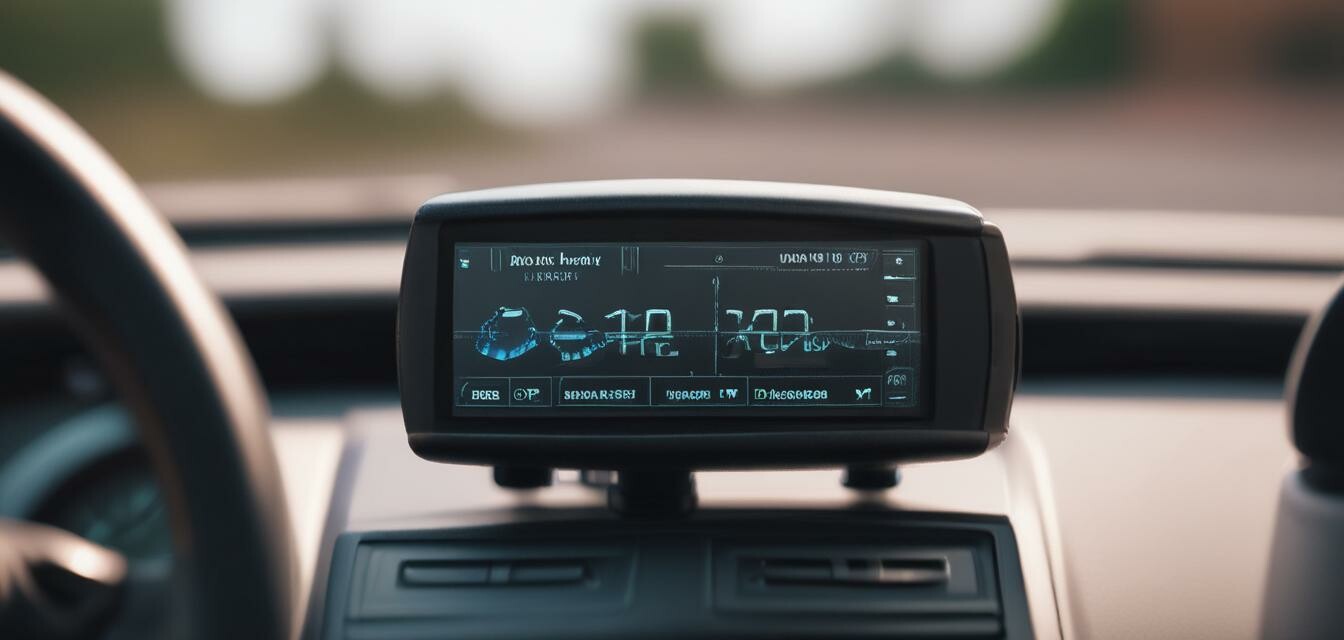
Essential Maintenance Tips for Your Radar Detector
- Regularly clean your radar detector to ensure accurate performance.
- Keep your device updated with the latest software for optimal functionality.
- Store your radar detector safely when not in use to prevent damage.
- Check connections and wiring regularly to avoid power issues.
- Understand the alerts and notifications to maximize your device's efficiency.
Maintaining your radar detector is crucial not only for its longevity but also for its performance on the road. With the right care and attention, you can ensure that your radar detector continues to provide reliable alerts and operates seamlessly. Below, we’ll discuss essential maintenance tips every radar detector user should follow.
Maintaining your radar detector
Regular maintenance of your radar detector can significantly improve its performance and ensure you get the most value out of your investment. Here are some practical tips to keep your device running at its best:
1. Cleaning your radar detector
Dust, dirt, and grime can accumulate on your device, affecting its sensors and performance. Regular cleaning will help keep your radar detector in tip-top shape.
- Use a microfiber cloth: This prevents scratches while effectively removing dust and smudges.
- Avoid harsh chemicals: Instead, use a gentle cleaning solution and a damp cloth.
- Pay attention to the sensors: These are vital for accurate readings and should be cleaned carefully.
2. Software updates
Just like any electronic device, radar detectors also require software updates to enhance their functionality. Keeping your device updated ensures you benefit from the latest features and improvements. Here’s how to handle updates:
- Regularly check the manufacturer’s website for available updates.
- Follow the provided instructions carefully when updating your device.
- Consider signing up for alerts or newsletters to stay informed about updates.
3. Proper storage
When you're not using your radar detector, proper storage is essential to avoid potential damage:
- Use a storage case: This protects it from physical damage while not in use.
- Keep away from extreme temperatures: Avoid leaving your device in hot or cold places, such as a parked car.
4. Checking connections and wiring
Maintaining the connections and wiring is fundamental to the effectiveness of your radar detector. Here are some checks and tips:
- Inspect the power cord for any damage or fraying periodically.
- Ensure that the connections are snug and free from corrosion.
- Test the device regularly to ensure it powers on correctly.
5. Understanding alerts and notifications
Your radar detector has several alerts that provide essential information while driving. Understanding these alerts can further optimize your experience:
- Read the manual: Familiarize yourself with what each alert means.
- Practice reaction: Learn to respond quickly to alerts for safety.
- Consider customizing settings: Adjust the volume and frequency of alerts to suit your needs.
Additional tips for radar detector care
Aside from the basics, here are extra maintenance tips to optimize your radar detector usage:
| Tip | Description |
|---|---|
| Use a windshield mount | Ensure proper placement for maximum sensor exposure and ease of access. |
| Regularly check legality | Stay updated on local laws regarding radar detector usage to avoid fines. |
| Seek professional help | If unsure about maintenance practices, consider consulting a professional. |
Conclusion
With these essential maintenance tips, you can ensure your radar detector remains in excellent condition, providing reliable alerts and enhancing your overall driving experience. For those new to radar detectors, checking out our buying guides might also help you make informed decisions about future purchases. Remember, a little care can go a long way in extending your device's life.
Beginners Section
If you're new to using radar detectors, starting with the basics of installation and understanding how they work is crucial. For tips on selecting your first radar detector, visit our buying guides and discover what features to prioritize.
Pros
- Improves radar detector lifespan.
- Enhances performance accuracy.
- Ensures updated technology.
Cons
- Requires regular time and effort.
- Potential costs for professional help.
